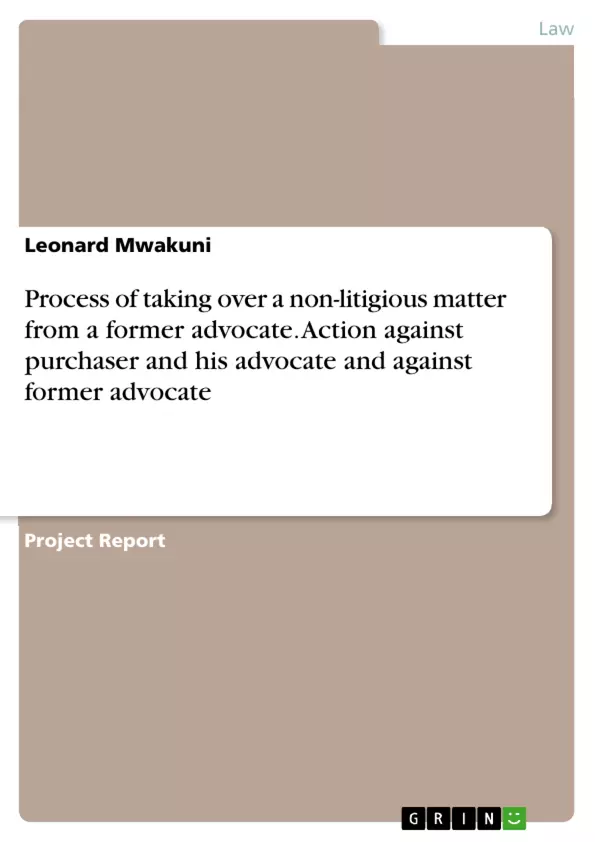The following question is answered in the course of this paper:
Mr. Kawigula, a fisherman on Migingo Island, instructed his Advocate, Peter Machachari who had acted on his behalf in an earlier matter to represent him in a land transaction where Mr. Kawigula was the vendor and was disposing of his property to raise funds for school fees for his children. Time was therefore of essence in the transaction. ...
Advise the client on the following:
a) Process of taking over the conduct of the matter from Advocate Peter Machachari
b) The action he may take against the purchaser and her Advocate Kimbelembele who issued the professional undertaking
c) The action he may take against his former Advocate Peter Machachari
Table of Contents
- QUESTION
- ACKNOWLEDGEMENT
- LIST OF STATUTES/RULES/CODES
Objectives and Key Themes
This legal case study focuses on the ethical and professional conduct of lawyers involved in a land transaction. The scenario explores the implications of a professional undertaking given by an advocate in relation to the payment of purchase price, the consequences of breach of that undertaking, and the potential actions available to the parties involved.
- Professional undertakings in legal transactions
- Breach of professional undertakings
- Client representation and legal advice
- Rescission of contracts
- Legal remedies for breach of professional duty
Chapter Summaries
- QUESTION: This section presents the factual scenario involving Mr. Kawigula, a fisherman on Migingo Island, who engages Advocate Peter Machachari to represent him in a land sale transaction. The scenario outlines the agreement of sale, the professional undertaking given by Advocate Kimbelembele, and the subsequent breach of that undertaking.
- ACKNOWLEDGEMENT: This section expresses gratitude to individuals and institutions who have assisted with the project work, including the Kenya School of Law, lecturers, and fellow students.
- LIST OF STATUTES/RULES/CODES: This section provides a list of relevant statutes, rules, and codes that are applicable to the legal issues raised in the case study.
Keywords
The primary keywords and focus topics of this case study include professional ethics, legal practice, professional undertaking, breach of contract, client representation, rescission of contract, legal remedies, and the Law Society of Kenya.
- Citar trabajo
- Leonard Mwakuni (Autor), 2021, Process of taking over a non-litigious matter from a former advocate. Action against purchaser and his advocate and against former advocate, Múnich, GRIN Verlag, https://www.grin.com/document/1245773



